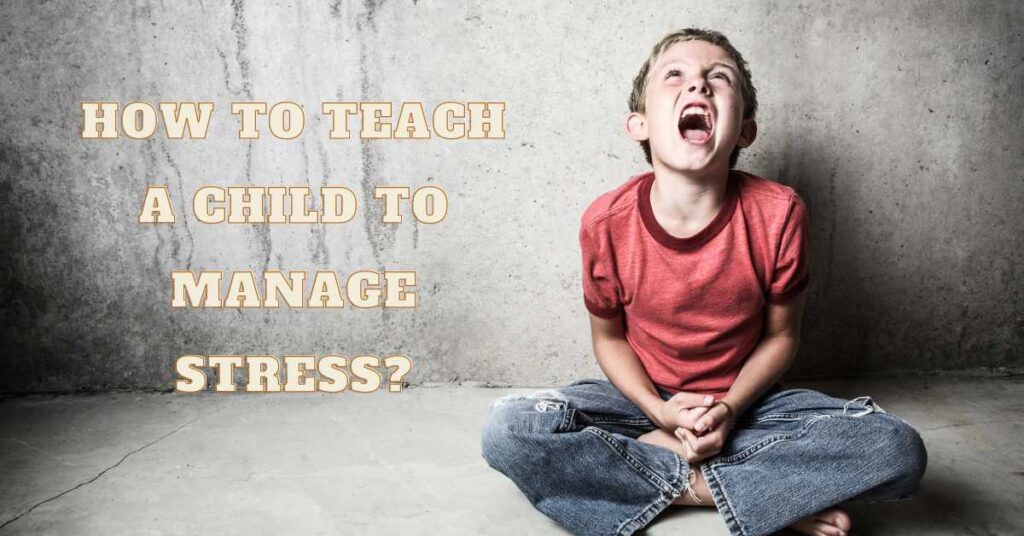Table of Contents
Introduction
Stress is a natural response to a perceived threat or demand. It is the body’s way of preparing to deal with a challenging situation. When we experience stress, our body releases hormones such as cortisol and adrenaline, which trigger the “fight or flight” response. This response prepares the body to either fight or flee the perceived danger.
In children, stress can be caused by various factors, such as schoolwork, peer pressure, family problems, or changes in their environment. When a child experiences stress, their body reacts in a similar way as an adult’s body. However, because their brains and bodies are still developing, they may be more susceptible to the negative effects of stress.
Family problems can definitely lead to stress in children
Children are often deeply affected by conflicts, disagreements, and other family problems that occur within the home. This is because children are still developing emotionally and rely heavily on their parents and caregivers for a sense of security and stability.
Children can feel overwhelmed, confused, and anxious when family problems arise. They may struggle to understand what is happening and why and feel powerless to change the situation. This can lead to a variety of emotional and behavioral problems, including depression, anxiety, anger, and difficulty in school.
It’s important for parents to recognize the impact that family problems can have on their children and to take steps to minimize the impact of these issues. This might involve seeking counselling or therapy, finding ways to reduce conflict and improve communication within the family, or providing additional support and reassurance to children who are struggling. By addressing family problems in a constructive and proactive way, parents can help their children cope with stress and build resilience for the future.
Yes, it is true that insufficient parental love can lead to stress in children. Parental love and support are essential for a child’s emotional well-being and development.

What does insufficient parental love lead to?
When children do not receive enough love, care, and attention from their parents, they may feel neglected, unloved, and unsupported. This can lead to feelings of anxiety, depression, and low self-esteem, which can cause chronic stress and impact their mental health in the long term.
Additionally, when children lack a secure emotional attachment with their parents, they may have difficulty forming healthy relationships with others later in life. This can further contribute to stress and emotional difficulties.
It’s important for parents to provide a nurturing and loving environment for their children to help them develop into emotionally healthy individuals. This includes spending quality time with them, showing affection, being supportive, and responding to their needs and emotions.
The impact of stress on the body of a child
The impact of stress on the body of a child can be significant.
Here are some ways that stress can affect a child’s body:
Physical symptoms: Stress can cause physical symptoms such as headaches, stomachaches, fatigue, and difficulty sleeping.
Emotional symptoms: Stress can cause emotional symptoms such as anxiety, irritability, mood swings, and feelings of sadness or depression.
Impaired immune system: Chronic stress can weaken the immune system, making it more difficult for the body to fight off illnesses.
Impaired brain development: Prolonged exposure to stress hormones can impact the development of the brain, affecting memory, attention, and learning abilities.
Behavioral problems: Children experiencing stress may exhibit behavioral problems such as aggression, withdrawal, or acting out.
It is important to recognize the signs of stress in children and help them develop healthy coping strategies to manage stress. Providing a supportive and nurturing environment, teaching relaxation techniques, and encouraging physical activity can help children develop resilience and reduce the negative impact of stress on their bodies and mind.
How stress weakens the immune system?
Stress can weaken the immune system in a variety of ways. When the body experiences stress, it triggers the release of stress hormones like cortisol and adrenaline. While these hormones are useful in the short term to help the body respond to stress, prolonged or chronic stress can negatively affect the immune system.
Here are some of the ways that stress can weaken the immune system:
Inflammation: Chronic stress can cause low-level inflammation in the body, which can impair the immune system’s ability to fight off infections.
Decreased white blood cell count: Stress can cause a decrease in the number of white blood cells, which are responsible for fighting off infections and diseases.
Impaired immune response: Stress can reduce the body’s ability to produce antibodies in response to vaccines and infections, which makes it more difficult to fight off illnesses.
Increased susceptibility to infections: Chronic stress can make people more susceptible to infections like the common cold, flu, and other illnesses.
Slower wound healing: Stress can slow down the body’s ability to heal wounds, which can increase the risk of infections and other complications.
It’s important to manage stress and take steps to reduce its negative effects on the body. This includes practising stress-reducing activities like meditation, exercise, deep breathing, getting enough sleep, and maintaining a healthy diet.
Teaching a child how to deal with stress

Teaching a child how to deal with stress is an important life skill that can benefit them throughout their life. Here are some tips on how to teach a child to deal with stress:
- Recognize and validate their feelings: Encourage your child to express their feelings and validate their emotions. Let them know that it is okay to feel stressed or anxious.
- Teach relaxation techniques: Teach your child simple relaxation techniques such as deep breathing, visualization, or muscle relaxation exercises. These techniques can help them calm down and reduce stress.
- Encourage physical activity: Exercise is a great way to reduce stress and anxiety. Encourage your child to participate in physical activities they enjoy, such as sports or dancing.
- Teach problem-solving skills: Help your child learn problem-solving skills to manage stressful situations. Encourage them to come up with solutions to their problems and think through the consequences of their actions.
- Teach time management skills: Teach your child how to prioritize tasks and manage their time effectively. This can help reduce stress caused by deadlines and time constraints.
Remember that dealing with stress is a skill that takes time to develop. Be patient and supportive as your child learns how to manage their stress.
How to teach a child mindfulness?
Practice mindfulness: Mindfulness can help reduce stress and anxiety. Encourage your child to practice mindfulness by focusing on the present moment and paying attention to their thoughts and feelings.
Mindfulness is a valuable skill that can help children manage stress, improve focus and attention, and develop emotional regulation. Here are some tips on how and when to begin teaching mindfulness to a child:
Start early: It is never too early to begin introducing mindfulness practices to a child. Even very young children can benefit from mindfulness exercises such as deep breathing, body scans, or simple visualizations.
Practice together: Modeling mindfulness practices for your child can be a powerful way to help them develop their own mindfulness skills. Practice mindfulness exercises together as a family and encourage your child to participate.
Make it fun: Mindfulness practices can be made fun and engaging for children by incorporating games, songs, or other activities that they enjoy. This can help keep them motivated and interested in practising mindfulness.
Keep it simple: When teaching mindfulness to children, it is important to keep the exercises simple and easy to understand. Use age-appropriate language and avoid overwhelming them with too much information at once.
Be consistent: Like any skill, mindfulness requires regular practice to be effective. Encourage your child to practice mindfulness exercises regularly and make it a part of their daily routine.
Seek guidance: If you are unsure about how to begin teaching mindfulness to your child, seek guidance from a qualified professional, such as a mindfulness teacher or therapist. Remember that mindfulness is a skill that takes time to develop. Be patient and supportive as your child learns how to practice mindfulness, and encourage them to keep practicing even when it feels challenging.
RESUME
When a child experiences stress, their body reacts in a similar way as an adult’s body. However, because their body and brain are not yet mature, stress can lead to harmful health consequences.
The best way to teach the child is always to be a good example for your child, show him the best features of yourself, never lie, and give him lots of love.
If you liked the article about “How to teach a child to manage stress?”, please comment below and share it on your social media. You can also subscribe to our newsletter to receive child health creation tips and recommendations from the certified paediatrician straight into your mailbox. Thank you for your contribution!
If you want to learn more about raising a happy and healthy child, be sure to check out the author’s books and resources on this topic here.





